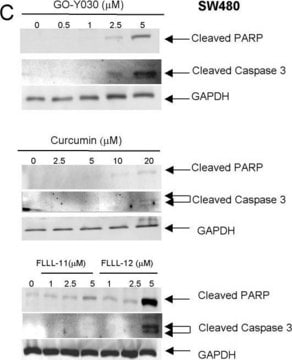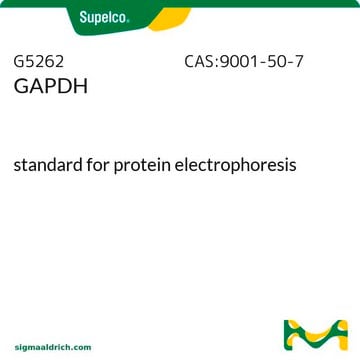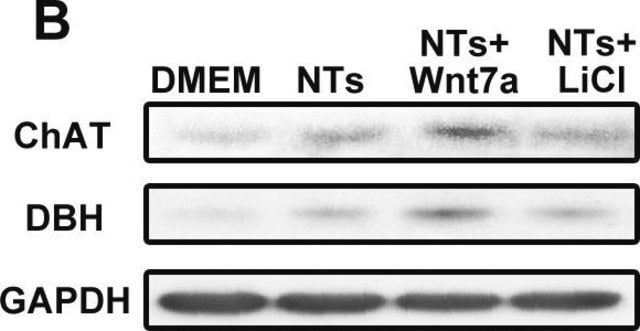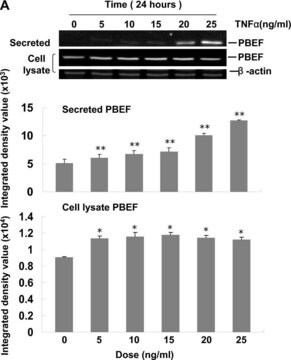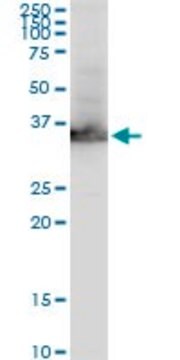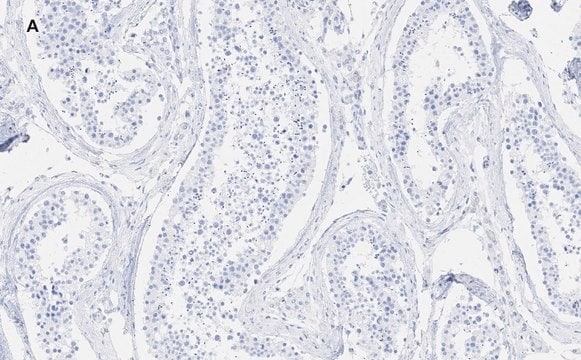G9545
Anti-GAPDH Antibody
rabbit polyclonal
Synonym(s):
Anti Gapdh, Anti Gapdh Antibody, Anti-Gapdh, GAPDH Antibody - Anti-GAPDH antibody produced in rabbit, Gapdh Antibody, Gapdh Antibody Sigma, Anti-38-kD component, Anti-G3PD, Anti-GAPD, Anti-Glyceraldehyde-3-phosphate dehydrogenase, Anti-OCAS, Anti-OCT1 coactivator in S phase, Anti-p38 component
About This Item
Recommended Products
Product Name
Anti-GAPDH antibody produced in rabbit, ~1 mg/mL, affinity isolated antibody, buffered aqueous solution
biological source
rabbit
Quality Level
conjugate
unconjugated
antibody form
affinity isolated antibody
antibody product type
primary antibodies
clone
polyclonal
form
buffered aqueous solution
mol wt
antigen ~36 kDa
species reactivity
mouse, rat, human
concentration
~1 mg/mL
technique(s)
immunoprecipitation (IP): 5-10 μg using mouse NIH3T3 cell lysates
indirect immunofluorescence: 5-10 μg/mL using rat NRK cells
western blot: 0.1-0.2 μg/mL using whole extract of human HeLa cells
UniProt accession no.
shipped in
dry ice
storage temp.
−20°C
target post-translational modification
unmodified
Gene Information
human ... GAPDH(2597)
mouse ... Gapdh(14433)
rat ... Gapdh(24383)
General description
Specificity
Immunogen
Application
- human cancer cell extract
- extract from muscle tissue from old mice exhibiting sarcopenia
- trabeculae or samples of the mice heart myocardium
- mouse embryonic fibroblasts
Biochem/physiol Actions
Physical form
Storage and Stability
For extended storage, freeze in working aliquots. Repeated freezing and thawing, or storage in “frost free” freezers, is not recommended. If slight turbidity occurs upon prolonged storage, clarify the solution by centrifugation before use. Working dilutions should be discarded if not used within 12 hours.
Disclaimer
Not finding the right product?
Try our Product Selector Tool.
Storage Class Code
10 - Combustible liquids
WGK
WGK 1
Personal Protective Equipment
Choose from one of the most recent versions:
Certificates of Analysis (COA)
Don't see the Right Version?
If you require a particular version, you can look up a specific certificate by the Lot or Batch number.
Already Own This Product?
Find documentation for the products that you have recently purchased in the Document Library.
Customers Also Viewed
Articles
The field of proteomics is continually looking for new ways to investigate protein dynamics within complex biological samples. Recently, many researchers have begun to use RNA interference (RNAi) as a method of manipulating protein levels within their samples, but the ability to accurately determine these protein amounts remains a challenge. Fortunately, over the past decade, the field of proteomics has witnessed significant advances in the area of mass spectrometry. These advances, both in instrumentation and methodology, are providing researchers with sensitive assays for both identification and quantification of proteins within complex samples. This discussion will highlight some of these methodologies, namely the use of Multiple Reaction Monitoring (MRM) and Protein-AQUA.
Loading controls in western blotting application.
Warburg effect enhances glucose to lactate conversion in tumor cells, regardless of oxygen levels; impacting cancer metabolism since 1924.
Our team of scientists has experience in all areas of research including Life Science, Material Science, Chemical Synthesis, Chromatography, Analytical and many others.
Contact Technical Service

